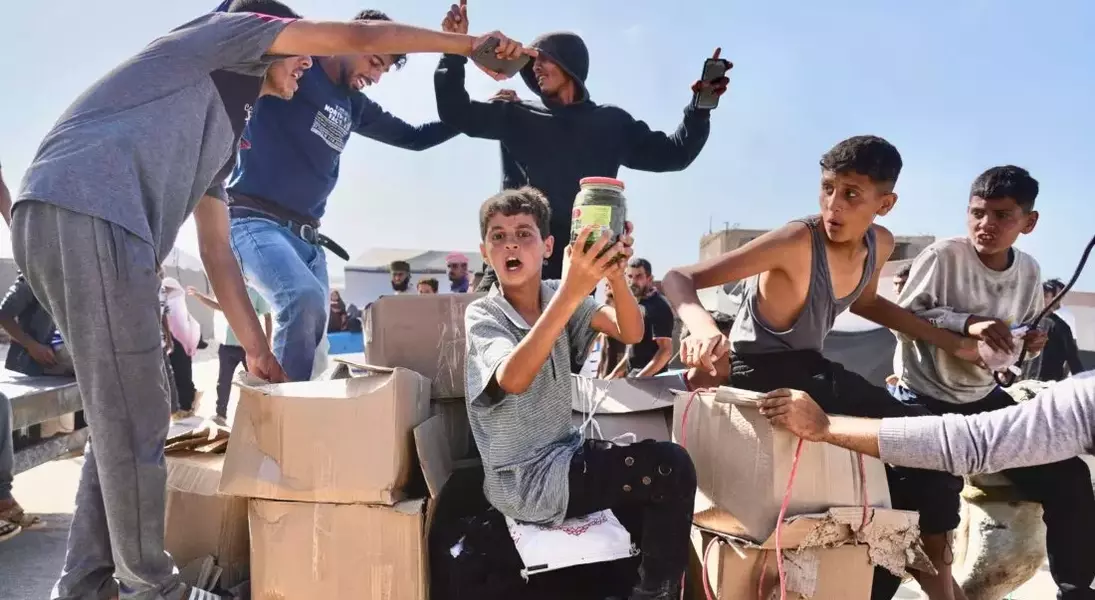
The situation in the Gaza Strip has reached a critical point as a newly established aid organization faces challenges in its mission to deliver essential supplies. On Tuesday, what started as an organized effort by the Gaza Humanitarian Foundation (GHF) quickly spiraled into disorder when thousands of Palestinians converged on a distribution center near Rafah. The desperation among residents, driven by months of blockade and dwindling resources, led to scenes of chaos as fences were torn down, and people surged forward to secure food packages.
As the crowd grew uncontrollable, nearby Israeli forces responded with warning shots, creating further panic among the gathered masses. Eyewitnesses reported hearing tank fire and observing military helicopters deploying flares above the area. Despite these disturbances, GHF officials stated that their staff adhered to safety protocols by temporarily withdrawing from the scene until conditions stabilized. This approach prioritized the protection of both aid workers and beneficiaries amidst volatile circumstances.
While some individuals managed to leave with basic provisions such as sugar, flour, pasta, and tahini, many others departed empty-handed. The complexities surrounding this operation highlight broader concerns about the effectiveness and impartiality of the current aid framework. Critics argue that relying solely on GHF may exacerbate existing inequalities while undermining established humanitarian principles. Furthermore, they caution against methods involving facial recognition technology, which could infringe upon personal privacy rights.
Amidst these challenges, it is crucial to emphasize the importance of collaboration and compassion in addressing global crises. Ensuring equitable access to vital resources requires innovative solutions grounded in respect for human dignity and international law. By fostering partnerships between diverse stakeholders, including local communities, governments, and independent organizations, we can work towards sustainable models of assistance capable of alleviating suffering worldwide.
